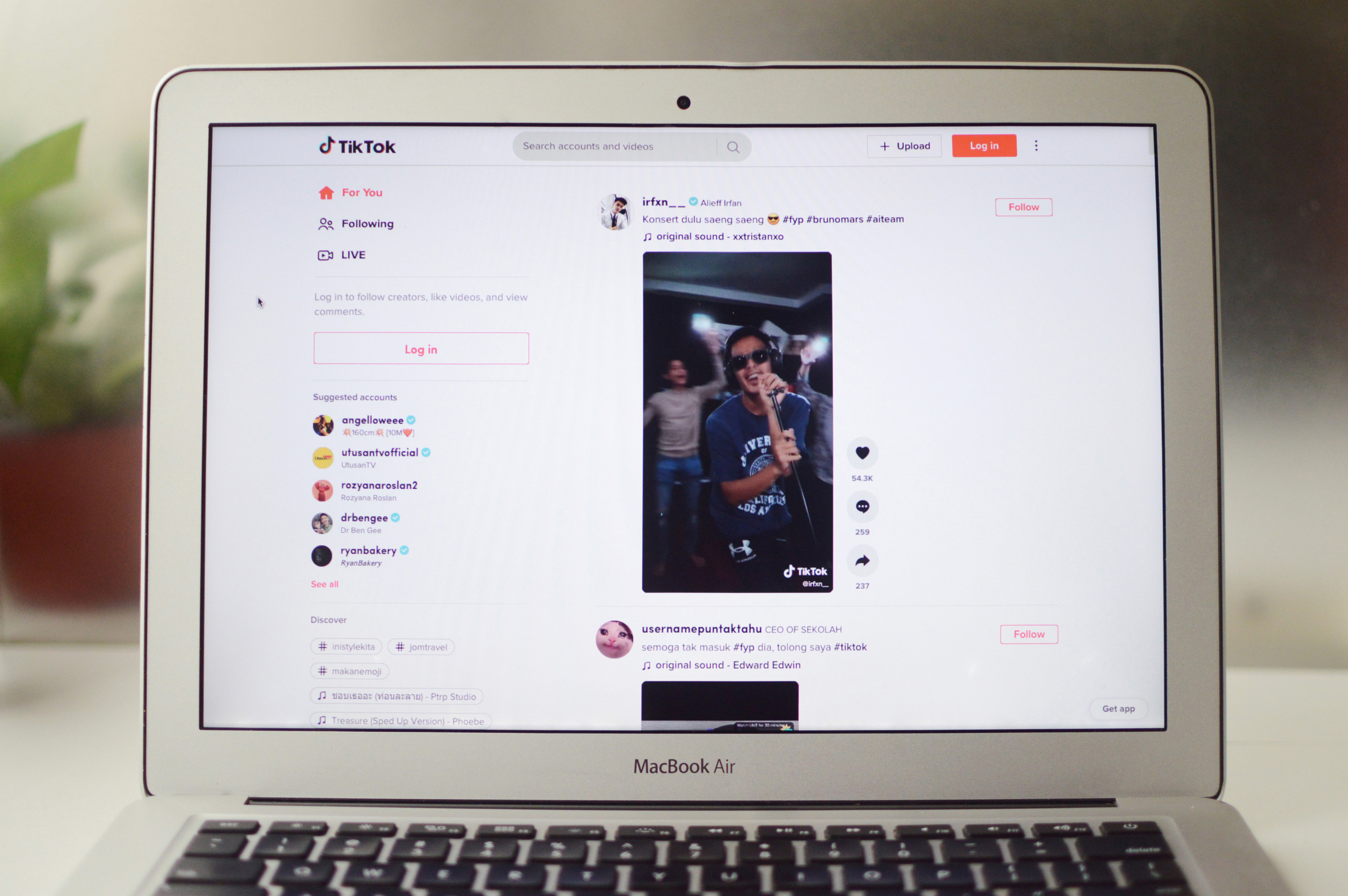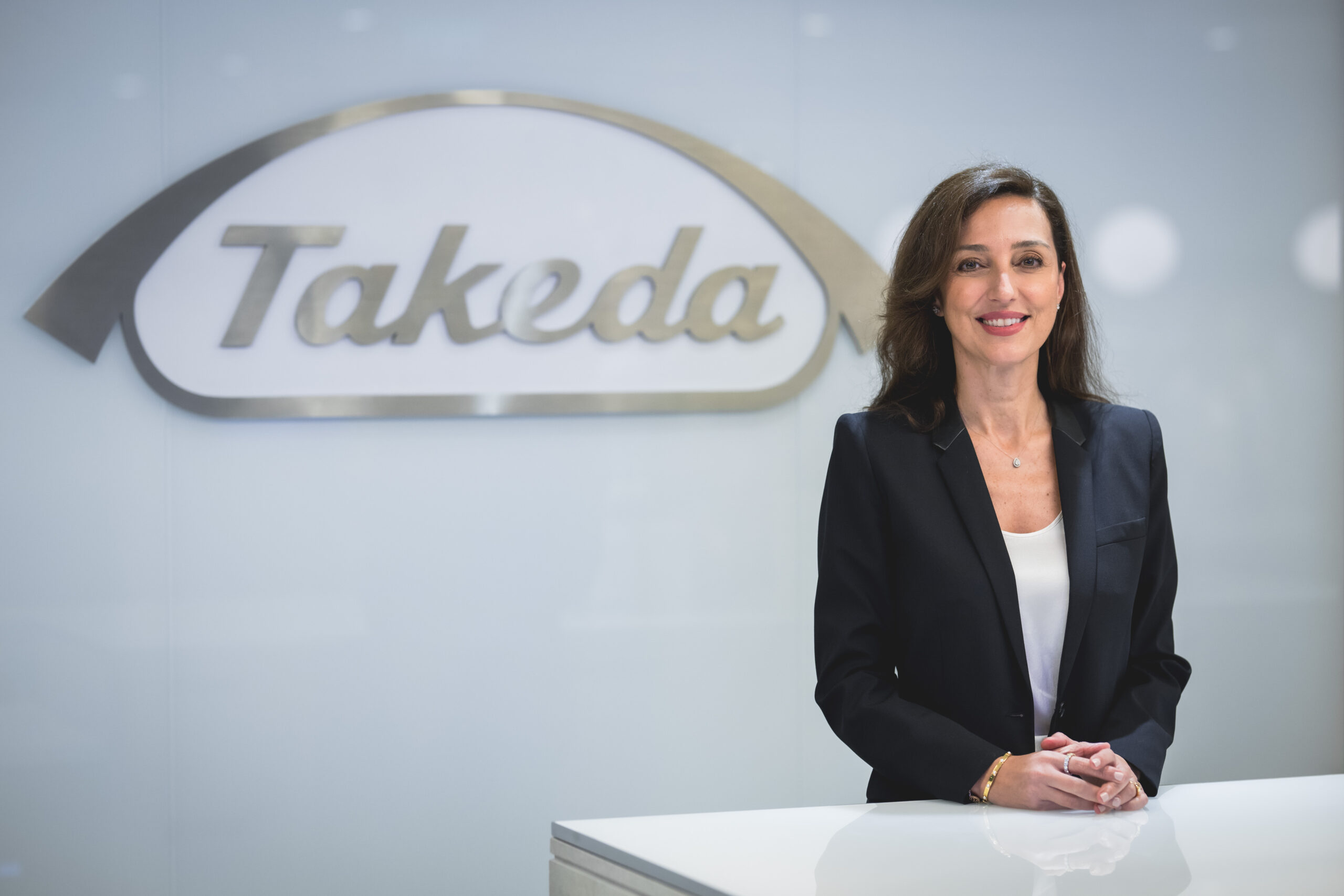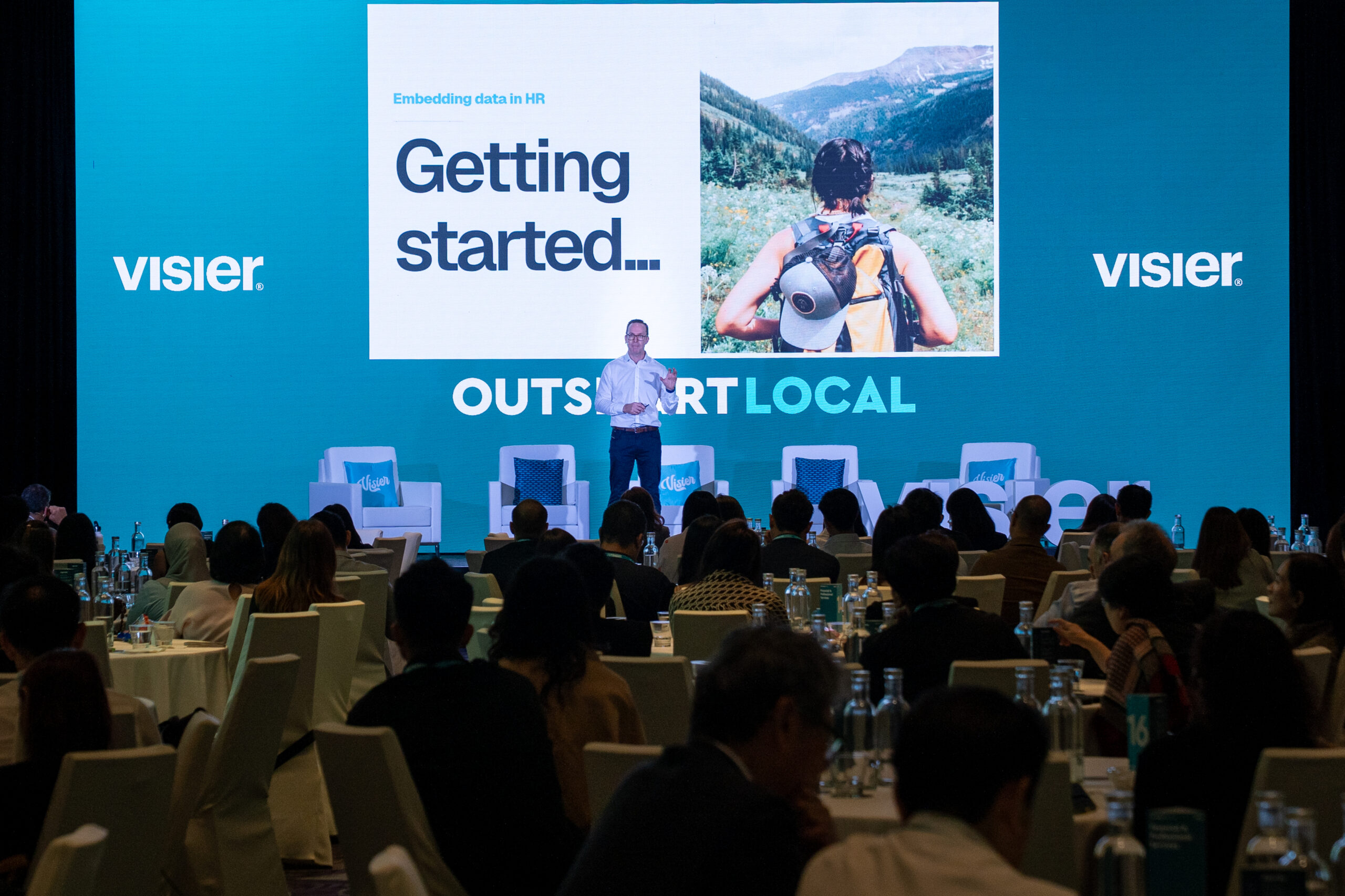Thailand HR Tech 2025 champions a ‘people-first’ approach to AI and workplace trust
- HRM Asia Newsroom
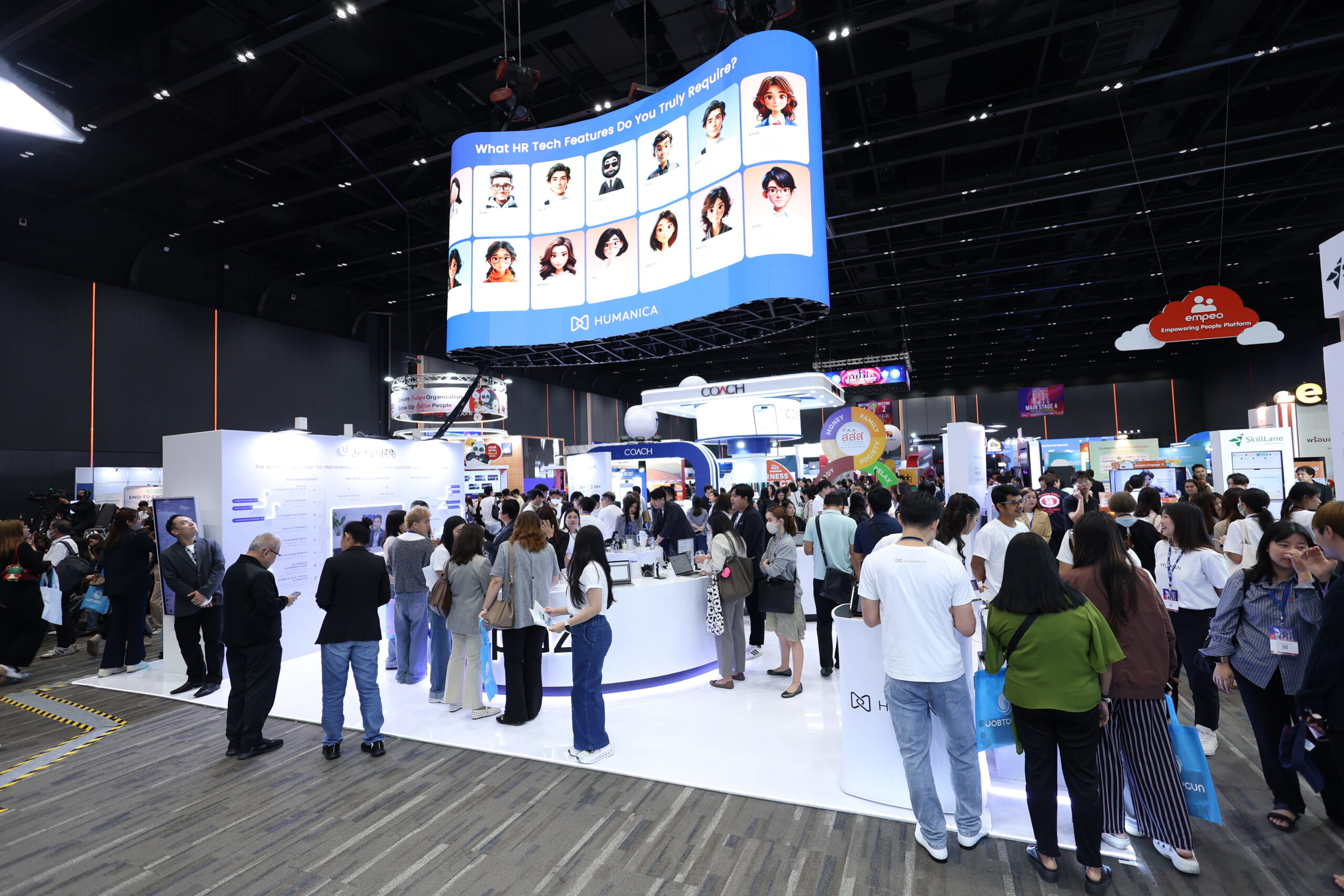
The Thailand HR Tech Conference & Exposition 2025 brought together a vibrant community of HR professionals, innovators, and industry leaders at Paragon Hall, Bangkok. Organised by the Personnel Management Association of Thailand (PMAT), the event centred on the theme The People & Tech Momentum: Rebuilding People, Trust and Sustainability, underscoring the vital need for technology, trust, and talent to evolve in harmony to drive lasting and impactful transformation.
From AI-enabled platforms and human-centric leadership to wellbeing ecosystems, the message was clear: technology must serve people, not replace them. HRM Asia caught up with two senior executives from TOPGUN and Humanica at Thailand HR Tech to share their perspectives on this change.
Trust through design: Humanica’s vision for sustainable HR
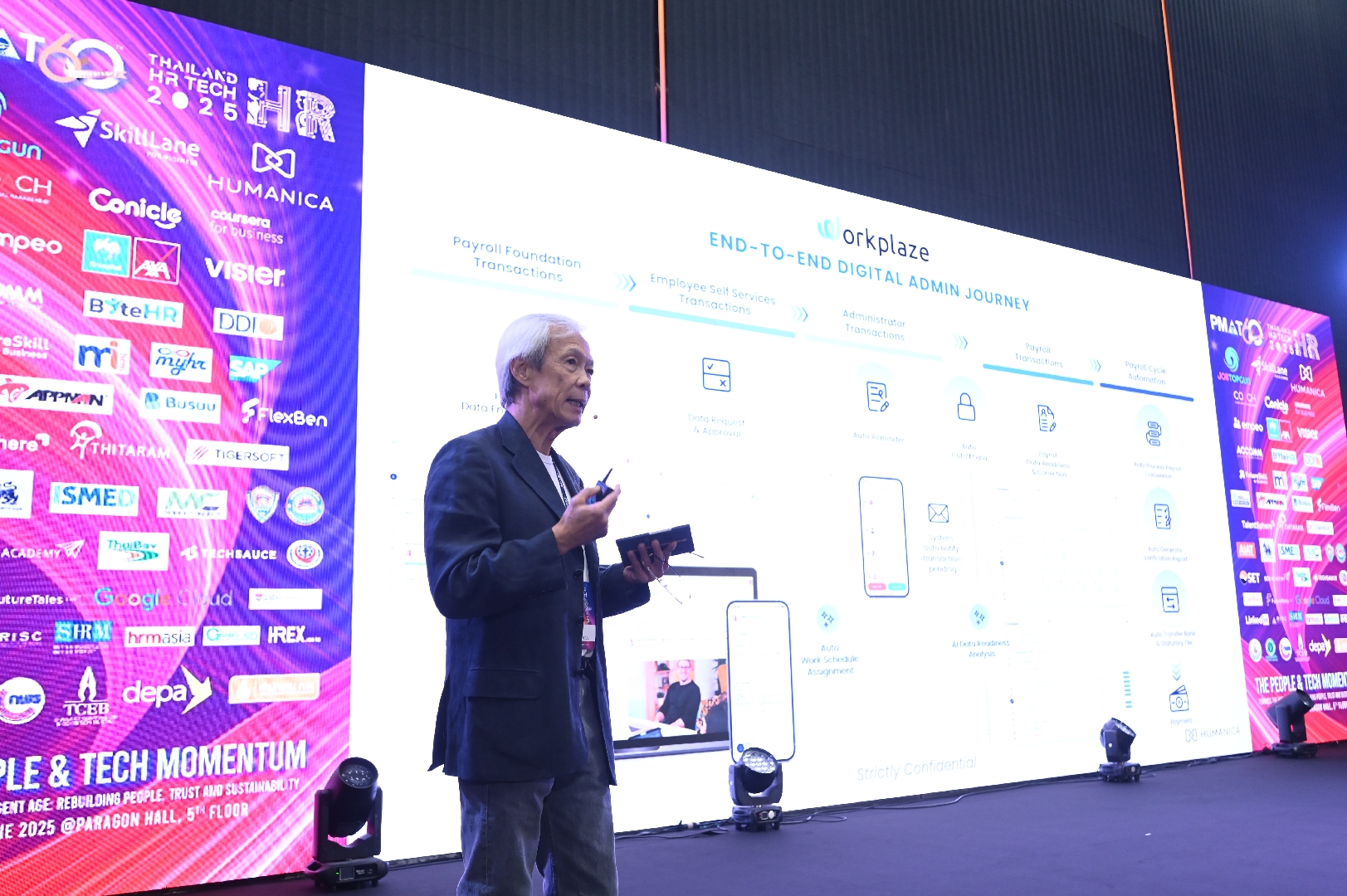
Soontorn Dentham, Founder and Group CEO of Humanica, emphasised a powerful message: in the intelligent age, rebuilding trust begins with placing people at the heart of technology. “Technology should enhance, not overwhelm, the human experience,” he said. Humanica’s platform is built on a human-centric design philosophy, carefully shaping experiences for both employees and managers. Beyond payroll and leave management, its tools are designed to empower individuals, offering end-to-end human capital management that supports not just work, but the overall wellbeing and life of people within the organisation.
This philosophy is reflected in its expanding suite of features, which includes AI-powered performance dashboards, integrated mental health and wellbeing support, self-service tools for financial planning and literacy, as well as recognition and reward features aligned with company culture. Together, these tools aim to create a more supportive, transparent, and empowering workplace experience.
“When people are burdened by financial stress, it impacts their productivity at work. Our platform is designed to ease that burden—supporting both peace of mind and performance,” Dentham explained. He also emphasised that data security and transparency are essential to fostering digital trust, and added, “Trust is earned when people feel seen, safe, and supported.”
Dentham sees Humanica not just as a provider of HR modules, but as a designer of holistic experiences. “We are not building software—we are building ecosystems that support health, growth, and resilience,” he noted. Upcoming innovations will further extend into areas such as wellbeing, career development, and recognition, transforming HR from a support function into a life-enabling one. “Technology doesn’t define culture; leaders do. Our job is to provide the tools, but it is up to leadership to drive engagement, recognition, and belonging,” he said.
Redefining talent in the AI age
While Humanica centred its efforts on systems and sustainability, Varis Shnatepaporn, Executive Vice-President of TOPGUN, offered a bold redefinition of talent in the age of AI. “The future of talent is not about credentials alone,” he said. “It’s about adaptability, curiosity, and drive—the human traits machines can’t replicate.” Supporting this shift, TOPGUN introduced its All-New Super Resume concept, an AI-enhanced digital profile that goes beyond traditional CVs by capturing soft skills, personal interests, and values.
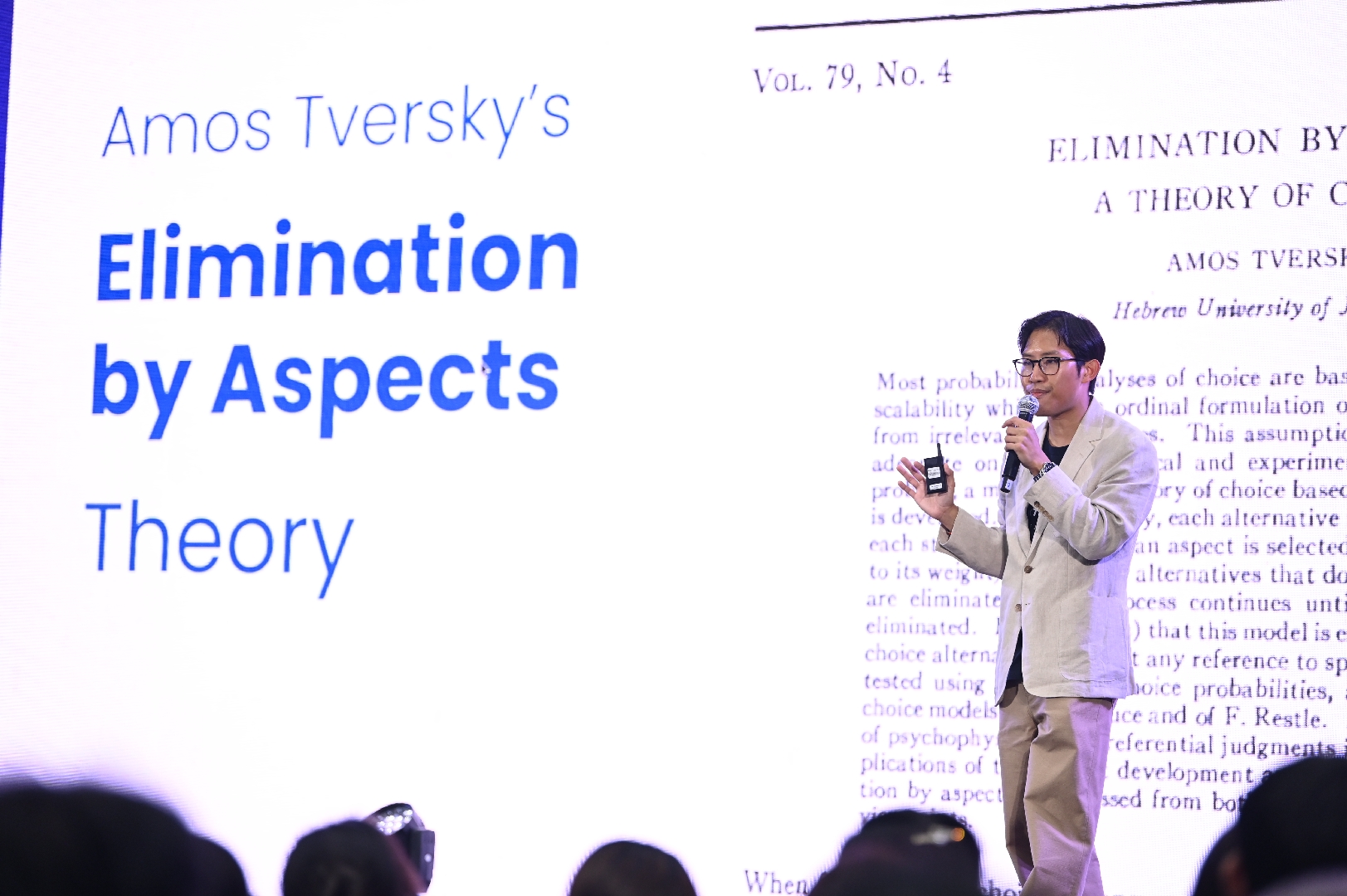
These traits are also quantified. “For example, let’s say you play tennis—you’re likely to be more competitive and able to adapt quickly to change,” Shnatepaporn explained. Framing TOPGUN’s broader mission, he added, “We see ourselves as a career ecosystem that supports professionals in every aspect of their journey.”
Employer branding is also evolving alongside talent profiles, with organisations rethinking how they present themselves to potential hires. Rather than relying on polished corporate messaging, organisations are now encouraging employees to share authentic experiences through photos, short videos, and honest feedback. “People don’t trust polished videos anymore,” Shnatepaporn said. “They want authenticity. Trust is built from the ground up, and that means being real about your workplace culture.” This transparent, multi-faceted approach to employee branding resonates strongly with younger talents, who value purpose, inclusion, and honesty. “The workforce is changing, and leaders must evolve with them,” he added.
Building a strong, authentic brand means “people need to see that branding in action,” Shnatepaporn emphasised. “When employees share their day-to-day experiences—what’s really happening at the organisation, from team-building activities to behind-the-scenes moments—it becomes the most genuine form of employer branding. It’s your people who are organically amplifying your brand.”
Human-centric technology at the forefront and people first
The exposition floor buzzed with innovations ranging from intelligent onboarding and burnout detection to skills-based analytics and wellbeing dashboards. What stood out was a common focus among vendors: striking a balance between automation and empathy. Whether showcased by start-ups or enterprise platforms, the shared goal was clear—to create more human-centred workplaces through smarter, more adaptive tools.
Shnatepaporn highlighted that AI may be able to answer questions, but only humans can ask the right ones. “Technology can give you speed and scale,” he said, “but judgment, ethics, and vision—that still belongs to people.”
Humanica’s Dentham echoed the sentiment that AI is not here to replace people but to elevate them. “It allows us to remove manual tasks and focus on strategic, meaningful work,” he said. However, that transition requires more than software; it demands education and a shift in mindset. “This isn’t just HR’s job,” he stressed. “It’s an organisational-wide responsibility to help employees learn how to use and trust these tools.”
Though their approaches differ, both leaders share a deep human vision for the future of work. For Shnatepaporn, success in the intelligent age demands courage, authenticity, and a willingness to adapt. “The tools will keep changing,” he observed, “but the real challenge lies in evolving how we lead, connect, and inspire.”
For Dentham, a sustainable HR model is one that supports the whole person. “When we empower people both at work and in life,” he concluded, “we build not just productive teams, but truly thriving organisations.”




